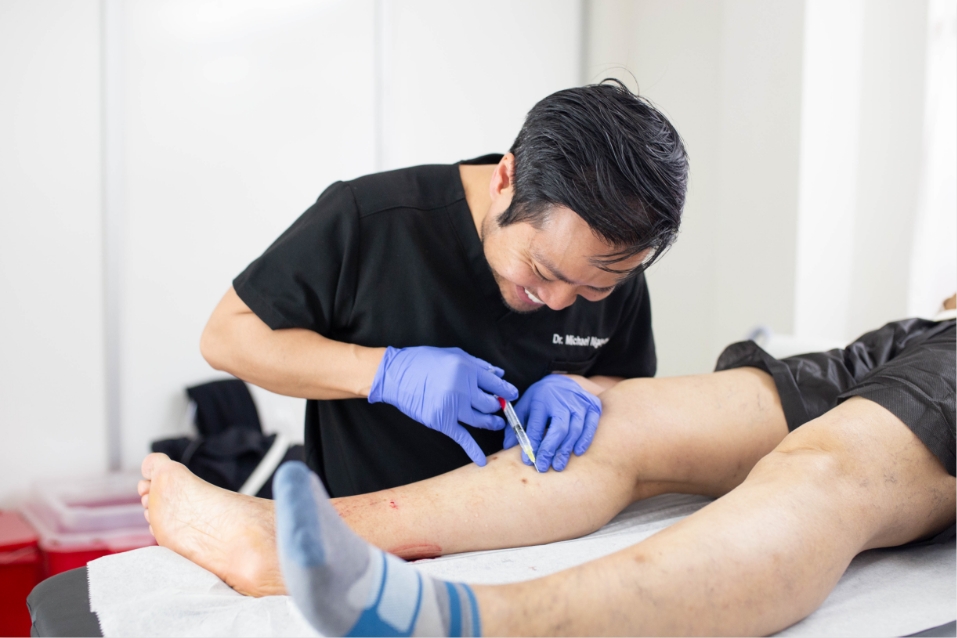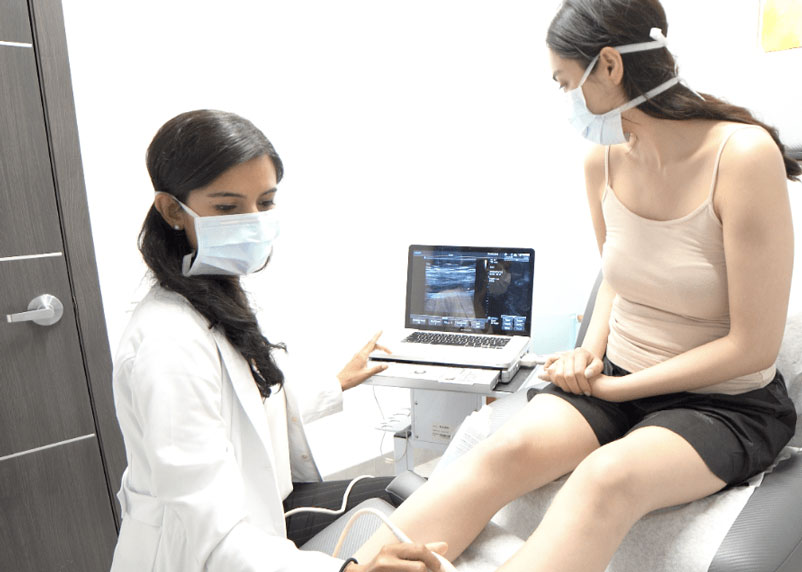5 treatment options for chronic venous insufficiency, spider veins, and varicose veins
What is the best treatment for venous insufficiency? If you’re asking that question, you’ve probably been diagnosed with chronic venous insufficiency, or perhaps you have spider veins and varicose veins. Whatever your situation might be, you must be well-informed about your treatment options. You should only consult vein doctors and vein treatment clinics specializing in minimally invasive spider vein and varicose vein treatments. If the vein doctor recommends vascular surgery, you must find another vein doctor. Furthermore, the vein clinic must diagnose and treat the root cause of your vein problems, and not just the superficial symptoms.

Chronic venous insufficiency is the root cause of most vein problems, including spider veins and varicose veins. Venous insufficiency is a medical condition wherein the vein valves collapse. In healthy veins, the valves act as one-way doors to ensure smooth blood circulation towards the heart against the force of gravity. When your vein valves collapse, blood flows backward and accumulates in the leg veins, eventually leading to vascular dilation and the eventual formation of spider veins and varicose veins. If you have vein disease, your vein doctor must address the root cause before removing the spider veins and varicose veins.
The Vein Treatment Clinic is led by highly-skilled and experienced vein doctors specializing in cutting-edge minimally invasive spider vein and varicose vein treatments, such as radiofrequency ablation, endovenous laser ablation, venaseal, and sclerotherapy. Our vein doctors perform a duplex ultrasound scan to diagnose chronic venous insufficiency and curate a personalized vein treatment plan. Below, we provide a detailed description of the best spider vein and varicose vein treatments.

Radiofrequency Ablation
Radiofrequency ablation is a minimally invasive procedure for chronic venous insufficiency. During radiofrequency ablation, the vein doctor administers local anesthesia and makes a small incision on the skin’s surface. The incision is an entry point for a catheter, which is carefully driven into the diseased saphenous vein under ultrasound guidance. Once the catheter is lodged in place, the vein doctor administers tumescent anesthesia to protect the surrounding tissues, following which the catheter is activated. The catheter generates thermal energy to collapse the diseased saphenous vein. The accumulated blood reroutes into healthier leg veins and restores optimal blood circulation to the heart.
Laser Ablation
Laser ablation is a minimally invasive procedure for chronic venous insufficiency. During laser ablation, the vein doctor administers local anesthesia and makes a small incision on the skin’s surface. The incision is an entry point for a laser fiber, which is carefully lodged into the diseased saphenous vein under ultrasound guidance. Once the laser fiber is lodged within the diseased vein, the vein physician delivers tumescent anesthesia to protect the surrounding tissues. When activated, the laser fiber generates laser energy to destroy the diseased vein. The accumulated blood reroutes into healthier leg veins and restores optimal blood circulation to the heart.
VenaSeal
VenaSeal is one of the latest minimally invasive treatments for chronic venous insufficiency, having received FDA approval in 2015. The vein doctor makes a small incision on the skin’s surface and inserts a specialized catheter into the diseased saphenous vein. Under ultrasound guidance, the vein doctor injects a medical-grade adhesive into the problematic vein to seal its walls shut. The diseased vein essentially turns into a hardened scar tissue eventually absorbed by the body, and the accumulated blood freely reroutes into healthier leg veins. VenaSeal negates the possibility of nerve injury, but it leaves a medical implant within the body.
Ambulatory Phlebectomy
Ambulatory phlebectomy is the ideal minimally invasive treatment for varicose veins. The vein doctor administers local anesthesia and makes extremely small incisions on the skin’s surface, through which the superficial varicose veins are physically extracted. This procedure instantly removes the superficial varicose veins, improving your leg’s appearance. The incision marks gradually heal and fade away. Ambulatory phlebectomy is a purely cosmetic procedure because it removes varicose veins without addressing the underlying vein disease, so it should only be performed after the primary vein treatment.
Sclerotherapy
Sclerotherapy is the best minimally invasive treatment for spider veins. The vein doctor injects a sclerosant medicine into spider veins to turn them into hardened scar tissues eventually absorbed by the body. The vein physician injects one dose of sclerosant medicine into each spider vein — that’s all it takes to make the spider vein disappear. Over time, as the hardened spider veins are absorbed by the body, they fade away from the skin’s surface. This is an extremely simple and painless treatment, and it concludes within 30 minutes. Sclerotherapy should only be performed after the primary vein treatment or if you don’t have spider veins.
What kind of doctor treats chronic venous insufficiency?
Vein doctors, also known as phlebologists, are responsible for the identification, diagnosis, and treatment of chronic venous insufficiency and all other vascular conditions, such as spider veins and varicose veins. Phlebologists must have specialized training in the diagnosis and treatment of vein conditions, and they should ideally be board-certified by the American Board of Venous and Lymphatic Medicine. The vein doctor should also be a registered physician in vascular imaging, and they must use duplex ultrasound tests to identify and treat the root cause of your vein problems — not just the symptoms.
The Vein Treatment Clinic is led by some of the country’s leading board-certified vein doctors. We individually select our vein doctors from the country’s leading medical schools and residency programs, thus ensuring the highest standards of vein care for our patients. If you have spider veins, varicose veins, or other symptoms of vein disease, please schedule an appointment with our vein doctors.








